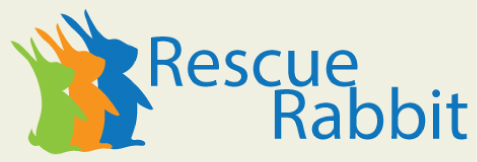Found a baby wild rabbit or hare or an injured wild rabbit or hare?
Baby hares (leverets) are born fully furred with their eyes open and are found above ground unlike baby rabbits (domestic or wild) who are born naked with their eyes and ears closed and are usually found in a burrow or nest.
Mother rabbits/hares do not sit in their nest and will leave their babies alone during the day and hide nearby, only coming for a few minutes to feed them at dusk and dawn.
Therefore if you find baby hares or wild rabbits alone it does not mean they are orphaned and need your help unless:
Keep noise to a minimum and do not handle further as leverets in particular can develop myopathy over a few minutes when stressed and will eventually die from it.
Do not give them anything to drink or eat and do not place water or food in the box (as they can aspirate and develop pneumonia) and get them to an experienced carer as soon as possible.
Please be aware that if you take them to a vet they will most likely be put to sleep as they are an introduced/non native species. So please consider a specialised wildlife carer or a hare rescue instead.
Hares are not considered a pest species in NSW but genarally find it difficult to adapt to life as a pet as they are very highly strung and can break their neck by running into obstacles when scared or drop dead of a heart attack. But then again there are always exceptions and there has been a couple of hares that have developed a special bond with their carer and have successfully adapted to a domestic life.
Once they are weaned and around 1.5kg 99% of hares will need to be released (on safe private acrerage), unless they are visually or otherwise physically impaired.
Although wild rabbits are considered a pest species in the wild, they make wonderful free range indoor pets especially when handraised (and later desexed).
So please give them a chance at a safe and happy life (with no impact on the Australian ecosystem whatsoever) by contacting us.
Baby hares (leverets) are born fully furred with their eyes open and are found above ground unlike baby rabbits (domestic or wild) who are born naked with their eyes and ears closed and are usually found in a burrow or nest.
Mother rabbits/hares do not sit in their nest and will leave their babies alone during the day and hide nearby, only coming for a few minutes to feed them at dusk and dawn.
Therefore if you find baby hares or wild rabbits alone it does not mean they are orphaned and need your help unless:
- they have an obvious injury,
- are covered in ants,
- have been caught by a predator,
- are in a trap or caught in a fence,
- are unresponsive and cold,
- are in a dangerous location,
- are in imminent danger from a predator
- have dead siblings or a dead parent nearby.
Keep noise to a minimum and do not handle further as leverets in particular can develop myopathy over a few minutes when stressed and will eventually die from it.
Do not give them anything to drink or eat and do not place water or food in the box (as they can aspirate and develop pneumonia) and get them to an experienced carer as soon as possible.
Please be aware that if you take them to a vet they will most likely be put to sleep as they are an introduced/non native species. So please consider a specialised wildlife carer or a hare rescue instead.
Hares are not considered a pest species in NSW but genarally find it difficult to adapt to life as a pet as they are very highly strung and can break their neck by running into obstacles when scared or drop dead of a heart attack. But then again there are always exceptions and there has been a couple of hares that have developed a special bond with their carer and have successfully adapted to a domestic life.
Once they are weaned and around 1.5kg 99% of hares will need to be released (on safe private acrerage), unless they are visually or otherwise physically impaired.
Although wild rabbits are considered a pest species in the wild, they make wonderful free range indoor pets especially when handraised (and later desexed).
So please give them a chance at a safe and happy life (with no impact on the Australian ecosystem whatsoever) by contacting us.
